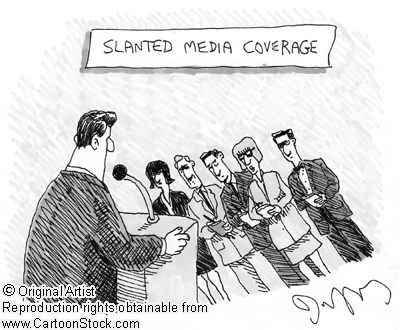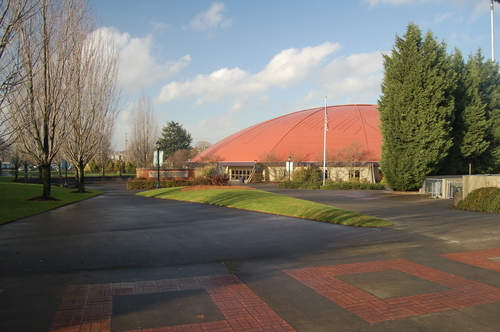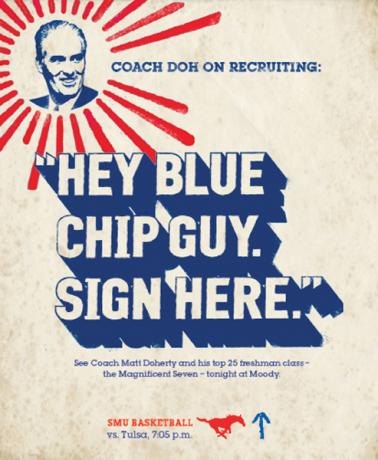
Andrew Murawa is the RTC correspondent for the Pac-10 and Mountain West Conferences and an occasional contributor.
To read the entire In Their Words series, click here.
Part Eight: MARKETING
Over the summer, we’ve spent time hearing about some of the next big-name recruits on their way to college basketball: Jared Sullinger and Harrison Barnes, Anthony Davis and Michael Gilchrist. We’ve heard the big-time schools announce their high profile games on their upcoming schedules: Kentucky going to the Maui Invitational and visiting North Carolina, Michigan State hosting Texas and going to Duke. But for the vast majority of Division I programs, they’ve been flying under the radar. There are at present 73 teams that participate in basketball in the six BCS conferences, but there are 347 total programs in Division I. Of those other 274 programs, there are certainly quite a few big-name programs: last year’s national runner-up Butler comes to mind immediately, as does Gonzaga, Memphis and a handful of other schools in conferences like the Atlantic 10 and the Mountain West. But, we were also interested in how the other half (or really, how the other three-quarters) lives, so we spent some time talking to coaches, athletic directors and other people around the country affiliated with some of those other schools — those non-BCS schools, those “mid-majors” — and we asked them about how they recruit, how they create a schedule, how they market their programs, and quite a few other things. Over the next eight weeks, we’ll let them tell you their story, in their own words.
To begin, let me introduce and thank this week’s cast of characters:
- Andrew Roberts, Assistant Athletic Director for Sports Information, Arkansas-Pine Bluff – Roberts runs a tight ship at UAPB as the sole full-time member of the Sports Information Department.
- Eric Brown, Assistant Athletic Communications Directory, Liberty – Brown is a graduate of Liberty University and former sports editor at the student newspaper, the Liberty Champion.
- Chris Lang, Writer, Lynchburg News & Advance: Lang has been the beat writer for Liberty University since 2005 after having spent eight years as the Sports Editor at the Arizona Daily Sun in Flagstaff, Arizona.
- Jessica Dickson, Assistant Athletic Director for External Relations, UMKC – Dickson has been in her current position, where she oversees marketing and promotions for UMKC, for just over three years.
- Larry Williams, Athletic Director, Portland: Williams has been the AD at Portland for six years now following a five year stint as the head of licensing and product marketing at his alma mater Notre Dame. Williams was a two-time All-American offensive lineman with the Irish before starting 44 games in the NFL.
- Kevin Keys, Associate Athletic Director for External Operations, Liberty – Keys is a ’77 Liberty graduate who enters his sixth year back on campus in charge of Liberty’s licensing, promotions and marketing.
- Chris Caputo, Assistant Coach, George Mason – Caputo is entering his sixth season as an assistant coach for the Patriots after spending the previous three seasons as an administrative assistant and video coordinator under head coach Jim Larranaga.
- Eric Reveno, Head Coach, Portland – Reveno heads into his fifth season at Portland having turned around a program from a team that was 18-45 in his first two seasons to a team on the rise with a 40-24 record over the last two seasons. Reveno spent his previous nine seasons as an assistant at Stanford, his alma mater where he was a Pac-10 Conference All-Academic Team selection as a senior.
So far, in regards to marketing, we’ve touched on the differences in the size of athletic budgets and the size of the media markets between some rather disparate programs classified as mid-majors. But regardless of the size of the program or the size of the market, a big key for mid-major programs is to get consistent media coverage. Coverage from their local media not only can keep the program in the minds of their fans and keep them up to date, but it can also introduce the team to new fans. Not surprisingly, schools in smaller markets generally have an easier time of getting local media coverage.

Media Coverage, Especially at the Local Level, is Important
Andrew Roberts, Assistant Athletic Director for Sports Information, Arkansas-Pine Bluff : Arkansas Pine Bluff is in a unique situation, because we have a local newspaper, the Pine Bluff Commercial, that does an outstanding job of covering the UAPB athletic department top-to-bottom, all sports, they all receive excellent coverage in our local paper. And then, there is a paper in Little Rock, the Arkansas Democrat Gazette and they cover football and men’s basketball extensively throughout the year. They’ll assign us a beat writer and he’ll cover us. The coverage was great.
Eric Brown, Assistant Athletic Communications Directory, Liberty: Our main media affiliates would be our local TV station here in Lynchburg, WSET. They do a good job of covering us since they’re right here in our area, and then our local newspaper Lynchburg News & Advance, they’re real good also. They’ve got a beat writer that covers us all the time.
Chris Lang, Writer, Lynchburg News & Advance: With basketball, we’re trying to cover all the Big South road games this year, where in the past we had covered mostly just home games. We don’t do a ton with the out-of-conference road games, because honestly Liberty is very unlikely to win many of those. I mean, if they go out to Florida, what’s the point of us traveling down there to watch them lose by 35 points or something. We do try to treat it like it’s a big time program, it’s the one program that’s right in our city and our backyard. We cover Virginia, Virginia Tech as well, but they are both an hour, an hour and a half away. Liberty is a growing program, it’s grown a lot in the five years I’ve been here for sure, it’s grown big-time, so we try to treat it as such.
Brown: Outside of that, there’s not a whole lot that will cover us regularly. The thing is, Charlottesville’s not too far away, but they’re gonna be focused on UVA. Roanoke is close, but they’ll be focused on Virginia Tech. So we’re kind of always competing with them, or in their shadow a little bit, because we may not get looked at as much in those areas because the focus is on Virginia and Virginia Tech. We’ll have a few other outlets cover us from time-to-time based on what we’re doing, but mostly it is the TV station and the newspaper.
In larger markets, getting consistent media coverage can be much harder, but it does happen.
Jessica Dickson, Assistant Athletic Director for External Relations, UMKC: Surprisingly enough, we are extremely lucky with the media coverage we have. Blair Kerkhoff (Kansas City Star) is who covers us the most and he really does seem to see the importance and the value of promoting UMKC, because we are the only Division I basketball program in Kansas City. He does a great job covering us. Now, where maybe Kansas or Kansas State or Missouri, the three Big 12 schools closest to us, don’t need to pitch stories to the local newspaper or to the radio stations or TV stations, that’s the difference with us, we do need to give Blair a call and say “hey we’ve got this student-athlete with this great story, can we get you in touch with the coach to talk about it”. And we work around his schedule and absolutely understand that where we thought something would run this week, it might get bumped because of something else and run the following week. But beyond the print, our media partner as far as broadcasting is Sports Radio 810, a fabulous all-sports radio station here in Kansas City. They cover us wonderfully, not only is that the home of our men’s basketball games, but our color commentator is Steven St. John, who hosts the morning show for the station and he’s a UMKC grad and covers us really well. They include us in their SportsCenter update, when they’re talking about what’s going on in the city. If we’ve got a game coming up that night, they’ll make sure to plug us. Anytime that we’ve got a game coming up where we want to get one of our coaches on the air, they’re more than happy to get them on for an interview. And then we’re extremely lucky in Kansas City to have a 24-hour local sports TV station called Metro Sports, they’re owned by Time-Warner cable and that’s been our television home since we went Division I and they’ll televise 15-17 of our men’s and women’s basketball games, and we get our coaches out to the studio on a weekly basis to do shows from their studio. So, we, for a mid-major school, get fabulous media coverage, especially when compared with some other schools.
While local media coverage is very important, getting on national television on a semi-regular basis is a goal as well for many of these programs, not only as a way to get the university’s name and brand out there, but as a way to build awareness for potential recruits.
Read the rest of this entry »
















































